A group of artists, brain imaging specialists, computer programmers, neuro-technologists and others are building a 15 foot model of the brain. It includes a network of colorful LED lights that are activated by signals sent from a portable EEG headset you wear while walking through the model.
The plan is to launch the project at the next Burning Man event. The team hopes (pending funding) to then take it to schools and inspire students and teachers.


Categories:
Other, Software Tags:
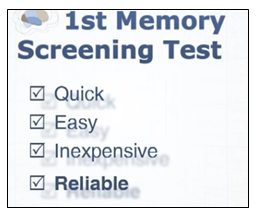 As we age our memory changes. Sometimes it is hard to know if your experiences are natural “senior moments” or early warning signs of serious memory problems such as those related to dementia, mild cognitive impairment or early Alzheimer’s disease. MemTrax was developed to help address this issue. It is a simple visual memory test you can take in 1-4 minutes. Your score is easy to understand and if you take the test on a regular basis, say every month, you can see how it changes over time.
As we age our memory changes. Sometimes it is hard to know if your experiences are natural “senior moments” or early warning signs of serious memory problems such as those related to dementia, mild cognitive impairment or early Alzheimer’s disease. MemTrax was developed to help address this issue. It is a simple visual memory test you can take in 1-4 minutes. Your score is easy to understand and if you take the test on a regular basis, say every month, you can see how it changes over time.
The initial test is free and you can see how it works in this demo. You can take the test on from your computer, iPhone or iPad.
I am interested to hear from readers that use MemTrax or other instruments that screen for neurodegenerative memory decline.
 The AARP has an excellent article on brain boosting foods. It covers 14 recipes ranging from pecan cranberry and orange muffins to an asparagus, mushroom and ham quiche with a potato crust. You get a full recipe for each dish as well as a brief explanation of the brain enhancing ingredients.
The AARP has an excellent article on brain boosting foods. It covers 14 recipes ranging from pecan cranberry and orange muffins to an asparagus, mushroom and ham quiche with a potato crust. You get a full recipe for each dish as well as a brief explanation of the brain enhancing ingredients.
The information comes directly from the book, ThinkFood: Brain Healthy Recipes. The AARP worked with Posit Science to collect ideas from 50 renown food bloggers. Unfortunately, the book is currently unavailable. I am interested to hear from readers that have a copy and want to share their favorite recipe.
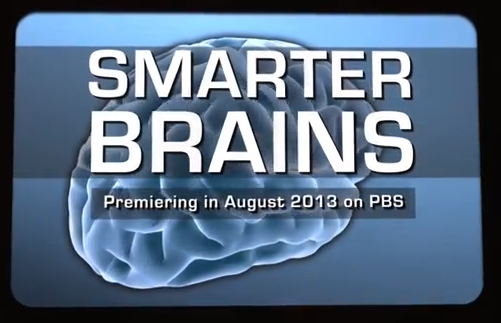
Click the image to watch the official trailer.
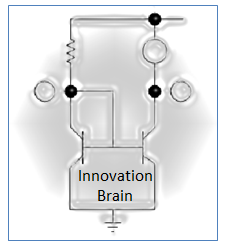 There is a lot of interest in getting better at innovation these days. While much of the focus is on creativity skill, a broader view indicates there are four areas you need to cultivate to build your innovation brain. These include:
There is a lot of interest in getting better at innovation these days. While much of the focus is on creativity skill, a broader view indicates there are four areas you need to cultivate to build your innovation brain. These include:
- Find or energize an innovation calling
- Reframe thinking to go in new directions
- Learn rapidly and deeply from experience
- Influence others to adopt new practices.
Surprisingly, the topic of influence seems to get the least attention. Innovators must convince others to invest time and resources in their raw ideas, persuade early adopters to try out prototypes and spend tremendous energy getting others to change behavior in order to grow a user base. Influence is a key to all phases of innovation.
There are many excellent books on how to get better at positive influence. Two of my favorites are the Influencer now in a second edition and How to Get People to Do Stuff. The Influencer advocates a focus on vital behaviors and provides a broad framework for crafting influence strategies. Get People to Do Stuff zeros in on the seven sources of motivation and provides very specific suggestions. For example:
“If you use nouns when making a request, rather than verbs – for example: “Be a donor” versus “Donate now” – it results in more people taking action. That’s because nouns invoke group identity.”
A careful read of both books reveals that they are recommending many of the same ideas. Indeed, I recently completed a review of over a dozen of the best books on influence and found they have five common themes and offer 25 best practices. The themes most relevant for innovators include:
- Craft compelling messages and stories
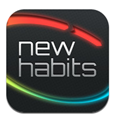
- Provide extra support to early adopters
- Be authentic, likeable & appreciative
- Master the five factors of innovation diffusion
- Leverage opinion leaders and indirect influence.
I’ve documented the 25 best practices as knowledge cards in the NewHabits, a free iPhone and iPad App. You play a card daily to experiment with and eventually master a proven influence technique. Cards are designed to fit into your everyday routine and take minutes to use. Each card is a small-step learning experience that accumulates over time into the habits of highly effective influencers.
An example card and table of contents for the deck is shown below.
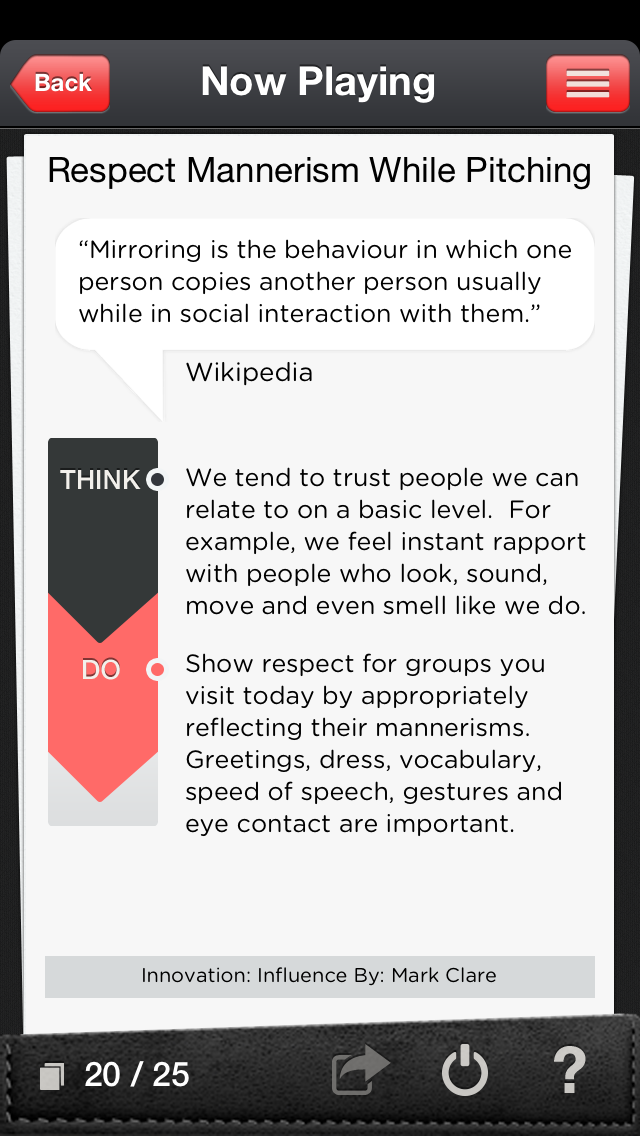
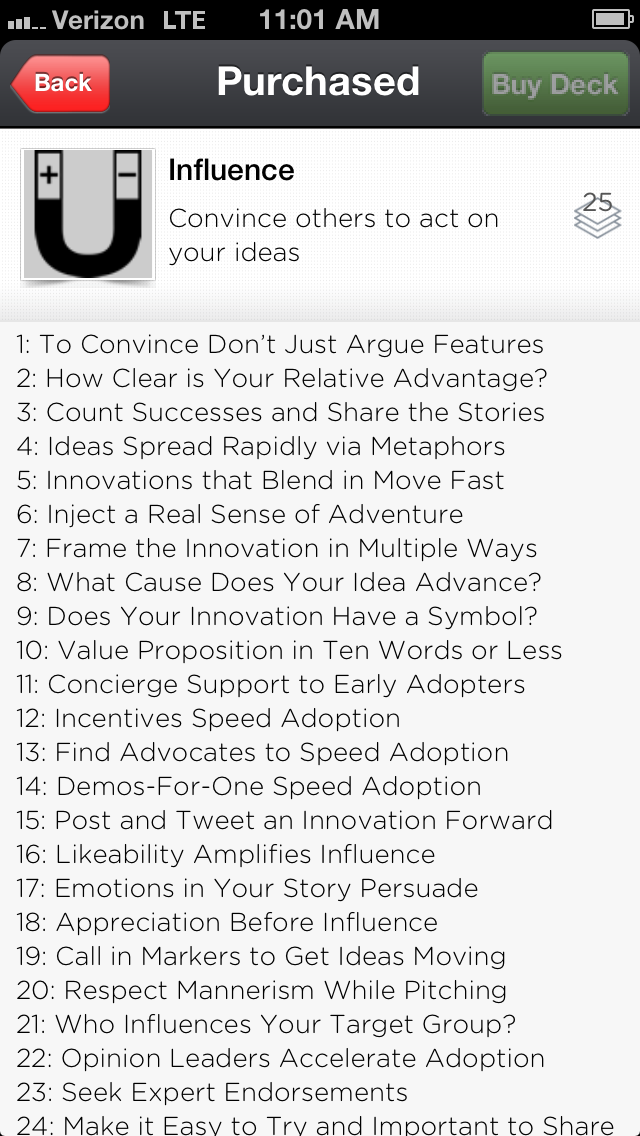
One of the best ways to sharpen your mind is to debate others. Whether you do it formally or informally in written form or verbal form challenging the thinking of another person will give you a good mental work out.
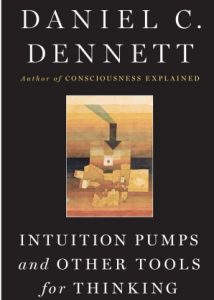 But what are the rules of mental engagement? How can it be done in a civil way that maximizes its brain boosting effects? One of the best suggestions I have seen comes from Daniel Dennett a well-known philosopher in his new book, Intuition Pumps and other Tools for Thinking.
But what are the rules of mental engagement? How can it be done in a civil way that maximizes its brain boosting effects? One of the best suggestions I have seen comes from Daniel Dennett a well-known philosopher in his new book, Intuition Pumps and other Tools for Thinking.
He starts the book with a quote that very much reflects the philosophy of the Next Brain Blog:
“You can’t do much carpentry with your bare hands and you can’t do much thinking with your bare brain.”
His specific suggestion for engaging others is summarized in the section on Rapoport’s Rules and involves a four step process:
- First you summarize the other person’s point and have them confirm that you understand it.
- List all the points you agree with.
- List the new things that you have learned from studying the other person’s position.
- Finally offer an initial criticism or rebuttal.
An excellent way to positively provide feedback and engage others in discussion and debate. It also gives your brain an excellent workout by requiring emotional control, replay, reflection and critical reasoning.
Rapaport’s rules are only one example of the many thinking tools Dennette reviews. I will blog about several others later this month.
Next time you find yourself disagreeing with someone apply Rapaport’s rules and give your brain a workout.
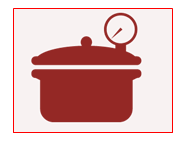 Interesting new research from Carnegie Mellon University demonstrates that chronically stressed individuals get better at problem solving if they take a few minutes to think about what is important to them. This self-affirmation technique can involve something as simple as taking a few minutes to identify an important value (family, art, business, friends. etc.) and writing a couple of sentences on what makes it important.
Interesting new research from Carnegie Mellon University demonstrates that chronically stressed individuals get better at problem solving if they take a few minutes to think about what is important to them. This self-affirmation technique can involve something as simple as taking a few minutes to identify an important value (family, art, business, friends. etc.) and writing a couple of sentences on what makes it important.
Focusing on what is important mitigates the effects of stress on parts of your brain and immediately improves your ability to solve problems. There is some evidence that this works outside the laboratory:
“An emerging set of published studies suggest that a brief self-affirmation activity at the beginning of a school term can boost academic grade-point averages in underperforming kids at the end of the semester.
A simple technique for improving cognitive performance under pressure in yourself and others. I am interested to hear from readers that have built self-affirmation into everyday activities.
Source of image: Pressure Cooker
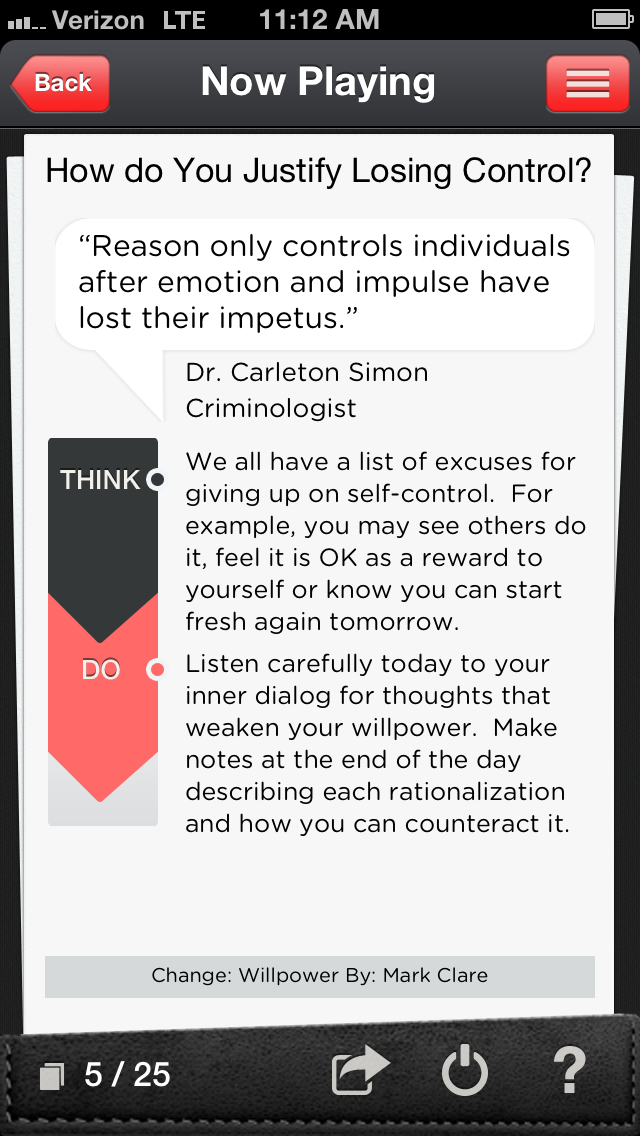 Willpower is the ability to carry out plans and reach goals especially when obstacles challenge us. It is what we use to resist temptation and keep going when we want to stop. Motivation, self-control, determination and grit all rolled up into our force of will.
Willpower is the ability to carry out plans and reach goals especially when obstacles challenge us. It is what we use to resist temptation and keep going when we want to stop. Motivation, self-control, determination and grit all rolled up into our force of will.
The topic of willpower is getting a lot of attention these days. A few examples:
- Akst, D. (2011). We Have Met the Enemy: Self-Control in an Age of Excess
- Baumeister, R. and Tierney, J. (2011). Willpower: Rediscovering the Greatest Human Strength
- McGongal, K. (2011). The Willpower Instinct: How Self-Control Works, Why It Matters, and What You Can Do To Get More of It
Some researchers argue that willpower is like a muscle. If we push too hard we become fatigued and can fail. On the other hand, if we train we can become very strong and develop endurance. But what techniques should we use to train?
To guide my training efforts I have reviewed the research and compiled 25 techniques that are practical enough to use in an everyday setting. To keep things simple I’ve documented each technique on a knowledge card that takes only a few minutes to use. Check out the example card to the right.
You can access the techniques in NewHabits a free iPhone and iPad app. Look in the store for the willpower deck. In the morning I quickly scan the deck and pick a card I want to play. With each play I strengthen my willpower muscle. It is easy to share the cards with friends through email, Facebook or Twitter.
Give the App and try and share your cards with others. I would like to hear from readers about how well the cards work and what other cards should be added.
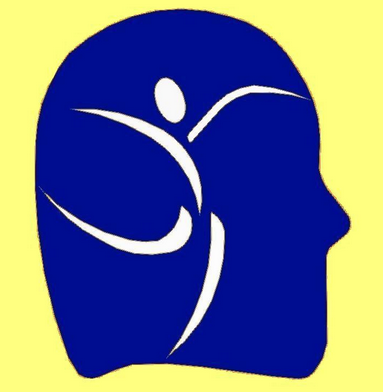 In the Next Brain Blog we look at evidence-based techniques for achieving peak mental performance at any age. What can we do to maintain brain health and improve cognitive performance?
In the Next Brain Blog we look at evidence-based techniques for achieving peak mental performance at any age. What can we do to maintain brain health and improve cognitive performance?
Several posts have focused on mind-body techniques. Such techniques ask us to focus on the connection between how we think and feel and various bodily functions and activities. Yoga, mindful breathing and mediation are examples. While such techniques are often viewed as fuzzy or new age, we have been documenting the growing evidence for how they improve brain function and cognitive performance on the Next Brain blog.
Additional evidence was recently published by the Boston University School of Medicine. They conduct a class with 27 medical students on Embodied Health: Mind-Body Approaches to Well-Being. It ran for 11 weeks and covered the neuroscience and methods for slow breathing, resistance breathing, Yoga, the placebo effect and mindful mediation practices. Students were asked to practice the methods at least three times per week.
Assessments before and after the course revealed a statistically significant improvement in the student’s capacity for self-regulation and self-compassion.
Self-regulation is our ability to manage our thoughts, feelings and impulses in order to achieve planned behaviors and goals. A capability that is essential for improvement, success and well-being in any walk of life.
For more information you can access the entire article for free. Be sure to check out table one that lists the topics and required readings for the course.
While the Boston work does not surface any new techniques it does add to the evidence for the effectiveness on the mind-body approach. The fact that doctors-to-be are learning about them in medical school signals a maturing and acceptance of the the approach.
How are you using mind-brain techniques to improve your cognitive performance?
Source of Image: Dr. Deb’s Psychological Perspectives
We learn most things from experience. Learning how to ride a bike, solve algebraic equations, cook a good meal, read a book or get along with a difficult neighbor are just a few examples. The learning from experience process is well understood. It is conceptually simple but error prone in practice.
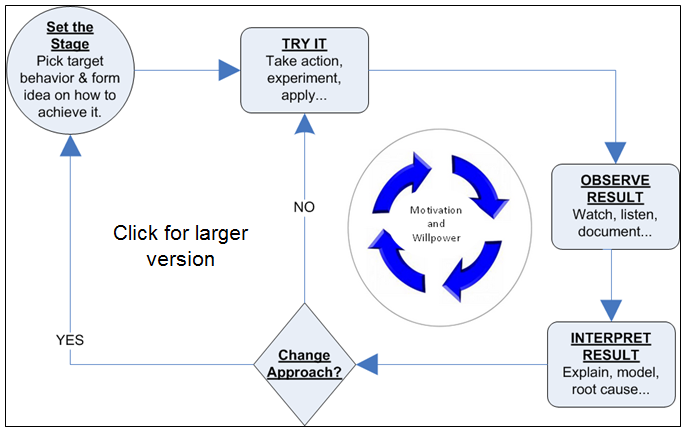 We set the stage by deciding what we are trying to learn and selecting a new behavior to try. We try the new behavior, observe the results, interpret the results and decide if we need to change our approach or stay the course. This process is repeated until we reach our goal or give up.
We set the stage by deciding what we are trying to learn and selecting a new behavior to try. We try the new behavior, observe the results, interpret the results and decide if we need to change our approach or stay the course. This process is repeated until we reach our goal or give up.
Of course it takes motivation to get this effort started and willpower to keep it going. Learning something new from experience takes diligence and usually involves some physical, emotional or reputational risks. Remember falling off your bike and the worry of reading poorly out loud as a grade school student?
Given the fundamental role learning from experience plays in acquiring new skills and changing behaviors, getting better at would have a significant impact on our overall cognitive performance. But can we really get better at it?
Fortunately, the answer is yes but we need to approach it one-step at a time. We should focus on improving our observation skills, interpretation skills or our capacity for self-control. Improvement in any one of these areas should translate into faster and deeper learning from experience.
You can use NewHabits, the free iPhone and iPad App to improve your ability to learn from experience. The App includes the following decks of knowledge cards:
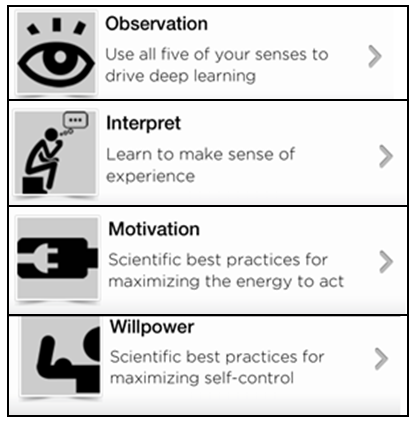
Each deck includes 25 proven practices for getting better at one of the steps in learning from experience. You can play a card daily or every few days from your mobile device. Cards are designed to fit into your daily work or home routine and takes just  minutes to play. Each card is one small improvement step but the effects accumulate over time into significant new competencies and habits.
minutes to play. Each card is one small improvement step but the effects accumulate over time into significant new competencies and habits.
Download NewHabits and give some cards a try. Both the motivation and observation decks are free. The other decks are $0.99 or $1.99 but you get 3 sample cards for free.
















